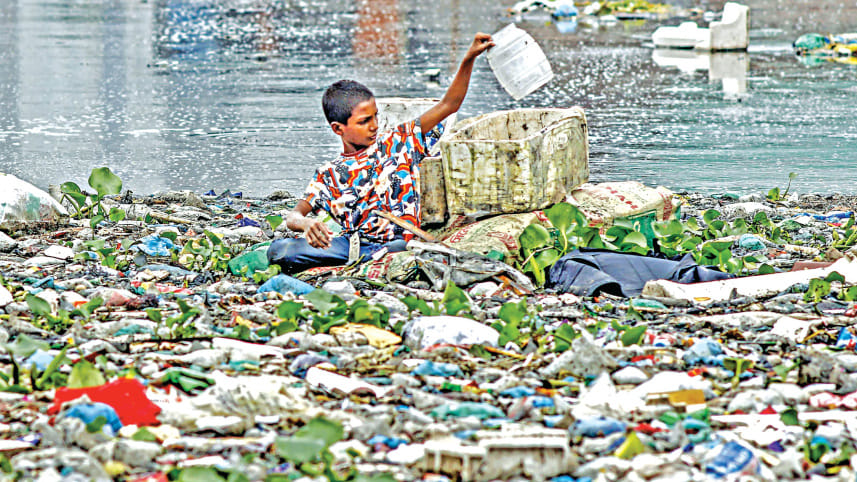National seminar calls for stronger child protection for low-income families

Children from low-income families, particularly those of garment workers, face alarming gaps in protection, healthcare, and education -- often leaving them vulnerable to exploitation, crime, and addiction. Child rights experts raised these concerns at a national seminar held yesterday in Dhaka.
Organised by Terre des Hommes Netherlands (TDH NL), in collaboration with Breaking the Silence (BTS) and Village Education Resource Center (VERC), the event was part of the "Community-Based Child Protection Mechanism for the Children of Garment Workers in Bangladesh (CB-CPM)" project.
Titled "Preventing Violence and Exploitation of Children and Sharing CBCPM Role Model and Best Practices", the seminar brought together government officials, development practitioners, and industry representatives to address child protection challenges in urban low-income communities, especially those linked to the ready-made garment (RMG) sector.
Md Nurul Kabir, Programme Coordinator of TDH NL, presented the keynote, noting that most RMG workers are unaware of basic child protection practices. He said the communities they live in lack structured systems to ensure children's safety and development.
Kabir highlighted the absence of early childhood development centres for children aged four to six, which he said hampers their readiness for formal education. He proposed establishing educational spaces and technical training opportunities tailored to garment workers' children, alongside child protection units within law enforcement and local watch groups.
Addressing legal gaps, Ain o Salish advisor Mabruk Mohammad said enforcement of child protection laws remains weak. "Many families are unaware of their rights or hesitant to seek legal help when abuse occurs," he noted.
Md Saidur Rahman Khan, Director General of the Department of Social Services, said, "We saw an alarming picture today. It's high time for government, private, and non-governmental organisations to work together to create child protection role models."
Javed Hossain Bhuiyan, Director of Pamma Apparels and Chair of the BGMEA Standing Committee, said productivity concerns are now tied to workers' wellbeing. "Many female workers worry about their children's safety during shifts, which affects performance. Coordinated support between government and private sector is essential."
Naima Hossain, Joint Secretary of the Department of Women's Affairs, cited the tragic case of a child named Achia. "We are trying to ensure no more children suffer like Achia. But without coordination, sustainability is not possible. This should be our commitment."
Nazrul Islam, Country Manager of TDH NL, said the CB-CPM project has made visible impact at the community level. "Children and parents are becoming more aware. But we want the initiative to continue—not just with international support, but through domestic funding as well."
Zahidul Islam, Interim Executive Director of BTS, added that many garment workers are dual earners, leaving young children without proper care. "Children aged four to six are not being prepared for school. The absence of early development centres is a serious gap that needs urgent attention."
The seminar concluded with a renewed call for a nationwide, multi-stakeholder approach to child protection.



 For all latest news, follow The Daily Star's Google News channel.
For all latest news, follow The Daily Star's Google News channel.
Comments